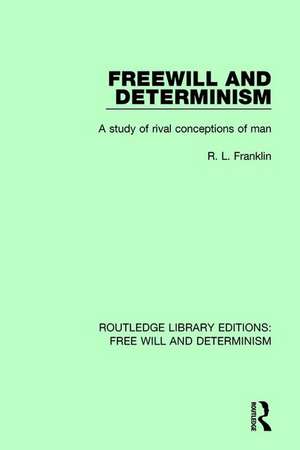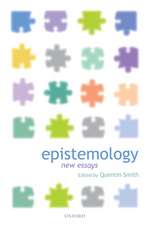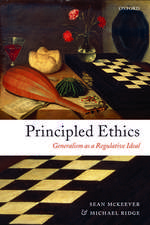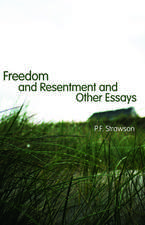Freewill and Determinism: A Study of Rival Conceptions of Man: Routledge Library Editions: Free Will and Determinism
Autor R.L. Franklinen Limba Engleză Hardback – 6 iun 2017
| Toate formatele și edițiile | Preț | Express |
|---|---|---|
| Paperback (1) | 349.80 lei 6-8 săpt. | |
| Taylor & Francis – 11 dec 2018 | 349.80 lei 6-8 săpt. | |
| Hardback (1) | 680.73 lei 6-8 săpt. | |
| Taylor & Francis – 6 iun 2017 | 680.73 lei 6-8 săpt. |
Din seria Routledge Library Editions: Free Will and Determinism
- 34%
 Preț: 3492.06 lei
Preț: 3492.06 lei -
 Preț: 323.23 lei
Preț: 323.23 lei -
 Preț: 316.91 lei
Preț: 316.91 lei -
 Preț: 244.94 lei
Preț: 244.94 lei -
 Preț: 323.23 lei
Preț: 323.23 lei -
 Preț: 315.02 lei
Preț: 315.02 lei -
 Preț: 349.80 lei
Preț: 349.80 lei -
 Preț: 323.23 lei
Preț: 323.23 lei -
 Preț: 349.80 lei
Preț: 349.80 lei -
 Preț: 349.80 lei
Preț: 349.80 lei -
 Preț: 323.23 lei
Preț: 323.23 lei
Preț: 680.73 lei
Preț vechi: 1112.20 lei
-39% Nou
Puncte Express: 1021
Preț estimativ în valută:
130.30€ • 141.58$ • 109.52£
130.30€ • 141.58$ • 109.52£
Carte tipărită la comandă
Livrare economică 21 aprilie-05 mai
Preluare comenzi: 021 569.72.76
Specificații
ISBN-13: 9781138703704
ISBN-10: 1138703702
Pagini: 358
Dimensiuni: 156 x 234 mm
Greutate: 0.45 kg
Ediția:1
Editura: Taylor & Francis
Colecția Routledge
Seria Routledge Library Editions: Free Will and Determinism
Locul publicării:Oxford, United Kingdom
ISBN-10: 1138703702
Pagini: 358
Dimensiuni: 156 x 234 mm
Greutate: 0.45 kg
Ediția:1
Editura: Taylor & Francis
Colecția Routledge
Seria Routledge Library Editions: Free Will and Determinism
Locul publicării:Oxford, United Kingdom
Cuprins
1. The Problem 2. Freedom and Indeterminism 3. The Nature of the Debate 4. The Scope of Libertarianism 5. Freewill and Philosophy of Mind 6. The Re-Emergence of the Problem 7. Predictability 8. Moral Philosophy and Moral Problems 9. desert and Efficacy 10. Excuses 11. Determinism and Phenomenology 12. Theoretical and Practical Explanation 13. Determinism, Science and Morality 14. Conclusion
Descriere
This book, first published in 1968, examines the complicated issues which surround the problem of freewill. Although it reaches a libertarian conclusion, its focus is largely on other questions. What ultimately is at stake in this debate? What difference would it make whether we had freewill or not?



















